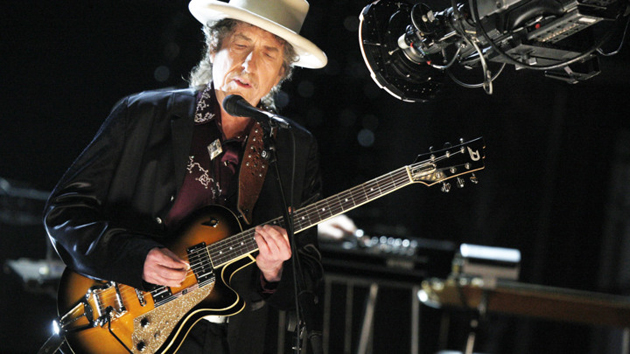Shadows in the night
What is it that has made Bob Dylan’s music so attractive to the last three generations? And what happened to his faith after he professed conversion in 1979?
22 JULY 2015 · 11:12 CET

At the age of 74, the legendary North-American musician, Bob Dylan, is returning to Spain to perform in six concerts. It is his tenth visit to the country. He has had such a strong influence on popular culture that he has become a true icon of the twentieth century, where his reputation no longer depends on his commercial success.
The famous grumpy man from Minnesota has been stringing tours together since 1988 in order to maintain his large family and numerous properties. In the hundred-odd concerts that he puts on every year, teenagers can be seen side-by-side their parents, and even grand-parents. What is it about his music that attracts these three generations? And what happened to his faith after his conversion in 1979?
Robert Zimmerman (Duluth, 1941) took his name from the Welsh poet Dylan Thomas, when he arrived in New York in 1961 to visit his agonizing idol Woody Guthrie. That was how his incredible genius was one day discovered by the folk queen Joan Baez, who took a liking to this strange adolescent in a café in Greenwich Village. His first years as a folk singer were closely linked to the movements for social change that took place at the beginning of the 60s. It was a moment in which the “times they [were] a changing”. There were many questions, but many people thought that the answers were “blowin’ in the wind”. He thus became as well known as the likes of Martin Luther King or President Kennedy.

NEVER-ENDING TOUR
Bob Dylan has long been a figurehead of counter-culture, although he has, paradoxically, never taken part in politics, which he at one time referred to as the “instrument of the Devil”. His interests focus on other topics including language, the Bible and traditional American culture. He is a profound person, who never smiles and avoids participating in television programmes. Changing and contradictory, his eccentricity has contributed to his legendary status. He is incredibly rich, but he lives like a gypsy, spending more time on tour than in any of his seventeen properties around the world.
What can be expected of his concerts? In theory, anything. Dylan is feared in the industry for his total lack of professionalism. All musicians that accompany him know that he never rehearses, nor has the least idea of what he is going to sing before he steps out onto the stage. He is totally unpredictable…
He has recently taken to playing the piano which is an instrument that he can barely play - and almost without leaving the keys, he goes through his songs and disfigures them. He stays true to his aloof and retiring nature, massacring his songs and making them barely recognizable. But that is all Dylan. You either take him or you leave him; there is no compromise. That is why we, his fans, are incurable. More than a mania, we suffer from some sort of disease or form of masochism. At the end of the day, though, we have been putting up with him this long, we might as well carry on….

WHAT HAPPENED TO HIS FAITH?
Since writing my essay about Dylan in 1985, many people have asked me about the faith that he professed in 1979. The truth is that I don’t know what to say. According to biographers like Howard Sounes: “Bob found a way to incorporate religiosity into these new songs without preaching”. He says that he talks about his faith as he did at the time of his conversion. The journalist believes that Dylan still holds openly Christian beliefs, but is now able to express those ideas without prudishness.

Having returned to the traditions of North-American music – jazz, bluegrass, the more archaic blues and tex mex -, Dylan made a compilation of Christmas songs (Christmas in the Heart) in 2009. In the promotional interview that he gave Bill Flanagan, the journalist observed that he delivered O’ Little Town of Bethlehem “like a true believer”. Dylan replied: “Well, I am a true believer”.
TRYIN’ TO GET TO HEAVEN
His recent compilation of songs by Frank Sinatra (Shadows in the Night) allows us to hear a voice that we hadn’t heard in many years. The brilliant production is reminiscent of the glorious recordings by Nat King Cole, but without their spectacular orchestration. Accompanied by two guitars, a base and a pedal guitar, it barely includes arrangements for wind instruments. It is a laid back and beautiful piece of work in which we see the artist’s maturity.

A song like Highlands gives us an idea of what it must feel like to achieve fame and fortune, but to feel old and regret the many things that cannot be changed. Dylan murmurs that he is lost, having chosen the wrong path in his confusion. That is why I find his song Tryin’ to get to heaven so moving. In it, he speaks with a weak and contradictory faith, but one which maintains the hope that changed his life at the end of the 1970s.
In that sense, his faith has gained in honesty. Not Dark Yet sounds like the internal monologue of a man at death’s door. His words sound like sighs among shivers. His load seems so heavy, that one fears that he will not be able to carry it. It is true that it is not dark yet, but “it’s getting there”. Provided that we do not stop praying for Dylan, because…
It’s getting dark,
Too dark to see.
I’m feelin’ like I’m knocking on Heaven’s door,
Knock, knock, knocking on Heaven’s door.
Knock, knock, knocking on Heaven’s door.
![]()
Published in: Evangelical Focus - Between the Lines - Shadows in the night
